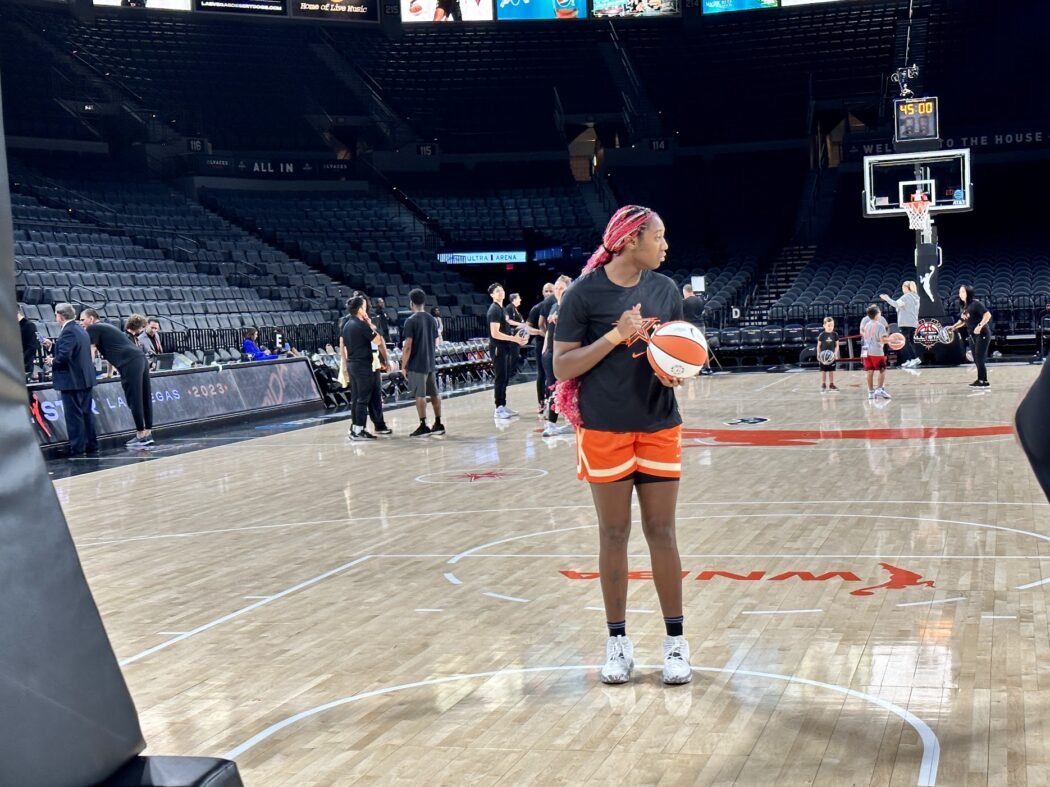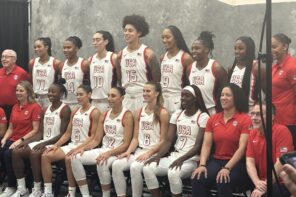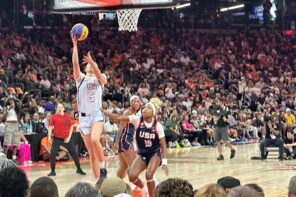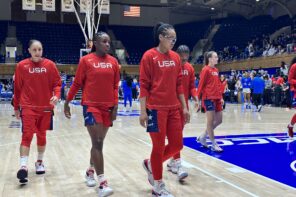With free agency right around the corner, the period of the WNBA calendar where news was seemingly at a lull will soon come to an abrupt end.
The WNBA’s news cycle is becoming busier and busier as we get closer and closer to the start of free agency, but the W itself made a bit of news this past week.
It announced that six players that will take part in Player Marketing Agreements this season.
The six players are Aliyah Boston (Indiana Fever), Rhyne Howard (Atlanta Dream), Shakira Austin (Washington Mystics), Brionna Jones (Connecticut Sun), Arike Ogunbowale (Dallas Wings) and Jewell Loyd (Seattle Storm).
The number of players opting to participate is down from 10 to six. That list of 10 included Diamond DeShields, Dearica Hamby, Napheesa Collier, DiDi Richards, Isabelle Harrison, Jasmine Thomas, Kahleah Copper, Ariel Atkins, Kelsey Mitchell and Ogunbowale – according to Jackie Powell at The Next.
Annie Costabile also reported on the nature of these PMAs. One of her reports in the Chicago Sun-Times did mention that a few players – including A’ja Wilson and Sabrina Ionescu – declined to participate in said agreements.
The player marketing agreements are a product of the 2020 collective bargaining agreement that was ratified by the WNBPA and league right before the onset of the pandemic. They call for players to earn a maximum of $250,000 off of these agreements.
The intent of these agreements, on the surface, is to give players the opportunity to earn money during the offseason without having to go play for an overseas team. While a number of players are still opting to play for overseas teams that are paying more money than their WNBA clubs, the overseas debate is surely taking on new meaning within W circles after the 2022 wrongful imprisonment saga involving Brittney Griner.
Ideally, these agreements would be more meant for rookies or players that are still on three-year rookie deals. Loyd is in the prime of her career. Ogunbowale is entering the prime of her career and also has a brother – Dare Ogunbowale – who plays in the NFL for the Houston Texans. Jones is also in the prime of her career.
Austin, Boston and Howard are relatively early in their careers. Jones has also taken on an assistant coaching role at Maryland while Howard has done the same at Florida. Boston has been doing work at the Big Ten Network on color commentary.
Players such as Austin, Boston and Howard are who these deals – ideally – would be more meant for. The WNBA is transitioning from an era where incoming rookies only had their rookie deals to look forward to one where rookies are bringing NIL endorsements with them to the W.
In the cases of Boston and Howard, both also have shoe deals. Boston is living the three-stripe life as an Adidas athlete while Howard is signed to Jordan Brand.
The 2021-22 offseason was the first where the player marketing agreements became a thing. Only three players participated in PMAs at first prior to the expansion to 10 players.
While Boston was at South Carolina, she spent plenty of time building her NIL portfolio. She had an NIL deal with Under Armour – which was also the apparel provider for the Gamecocks.
Look at all of the endorsements that Caitlin Clark has inked. From being in a State Farm commercial to her “Caitlin’s Crunch Time” cereal that is selling like hotcakes throughout Iowa. That is why the Indiana Fever – and the W as a whole – are hoping Clark does not decide to use her COVID year and stay an extra year in college. For all of the problems the WNBA has notoriously had with making player jerseys available, something tells us Clark’s jersey will start selling like hotcakes the nanosecond she is drafted.
More money for WNBA players is always a good thing. Is WNBA money anywhere near NBA money? No it is not. But the idea that WNBA ballers as a whole are hurting for money is slowly, but surely, going the way of the dodo bird. And the quicker the better.
Players on PMAs are basically league-mandated ambassadors for the WNBA. And they work better for young players as it allows them to earn more money as opposed to only the $60,000-$80,000 they pocket off three-year rookie contracts.
And it allows them to stay stateside and not have to worry about playing overseas – and avoid life-threatening situations with playing in countries such as Russia and Israel.
Are these deals perfect? Not at all. But they are a step in the right direction – and more money for our beloved women of the W – especially rookies – is always an emphatic victory.




